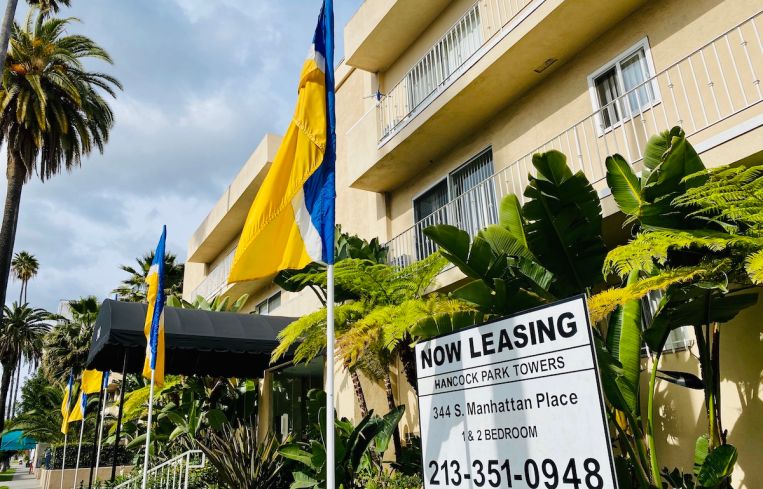Calif. Lawmakers Propose Unprecedented Renter Relief Program
Renters would have a 10-year window for rent repayments while landlords would receive tax credits, both starting in 2024
By Greg Cornfield May 13, 2020 12:55 pm
reprints
State lawmakers representing Southern California introduced proposals this week, including one for long-term apartment rent relief, to help aid economic recovery throughout the state and address the financial crisis caused by coronavirus.
The state senate resumes its session this week, and the group of democratic senators announced a measure to help renters and landlords with payments, and another to create a $25 billion economic recovery fund through prepaid future tax vouchers. The two plans are part of a suite of proposals that state policymakers are working on this session as they navigate through rising unemployment and more than two months of economic shutdowns.
The first proposal would establish a program for deals between apartment renters, landlords and the state to resolve unpaid rents. It would allow renters to receive immediate relief for unpaid rent and protection from eviction, and allow them to repay past rents with no interest to the state over a 10-year period, beginning in 2024.
Landlords would provide rent relief and commit to not evicting tenants in exchange for tax credits from the state that are equal to the value of lost rents, spread equally over tax years 2024 through 2033.
California counties and cities were granted federal grants as part of the Coronavirus Aid, Relief, and Economic Security (CARES) Act, which can serve as an immediate source of rent for low- and moderate-income renters for up to three months’ rent.
“The new federal funding is an opportunity to provide renter relief during this crisis and ease the financial strain of both renters and rental property owners who rely on rents to pay their operating and maintenance costs,” said Jack Schwartz, legislative chair for the California Rental Housing Association (CalRHA), in a statement.
About two weeks ago, advocates for rental housing managers and landlords, including CalRHA and the Apartment Association of Greater L.A., proposed a different statewide rental assistance program for deferral and repayment plans. Using the CARES Act or state funds, it also included three months of assistance for renters who can demonstrate lost income due to coronavirus.
The second proposal from state senators this week would create a $25 billion economic recovery fund by establishing voluntary prepaid future tax vouchers from 2024 through 2033. The funds could be used to create jobs, services and resources. Current proposals shared with Commercial Observer include aid for small business and nonprofit organizations, worker assistance, worker retraining, infrastructure project acceleration, rental assistance, government relief, and more.
The proposals were introduced by Senate President pro Tempore Toni G. Atkins (D-San Diego), Senators Holly J. Mitchell (D-Los Angeles), Steven Bradford (D-Gardena), and Robert M. Hertzberg (D-L.A.).
“Now is the time to explore more creative ways to help financially stabilize this new era in California, and it’s our cautious optimism and careful planning that’s going to get us there as we all move forward together,” Hertzberg said in a statement. “Workers aren’t working. Rents are due. Families are in crisis.”
L.A. city lawmakers have imposed eviction moratoriums and put a freeze on rent increases for all rent-stabilized units in the city. Last week, the city council also requested the governor allow municipalities the authority to freeze rent on all multifamily stock — which is prohibited by state law.
Earlier this week, Governor Gavin Newsom, Atkins, and other state leaders, joined the governors of Colorado, Oregon, Nevada, Washington, and requested $1 trillion in relief funding to continue supporting the recovery.
“It is now clear that COVID-19 will be with us for the foreseeable future, and the worst of its economic impact is yet to come,” the lawmakers wrote in a letter to the leaders of Congress. “Each of us has seen first-hand how COVID-19 has caused a national recession that we are seeing play out in our states – resulting in a record amount of lost wages and business failures, spiraling unemployment and substantial, unplanned COVID-19-driven costs.”
Last week, Newsom said the state will face a budget deficit of more than $54.3 billion going through next summer, mostly due to a major drop in projected tax revenue, according to media reports. He is expected to release a revised budget today.



